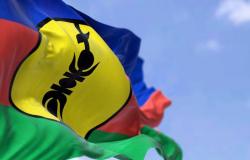Last week, the Milei government managed for the first time to obtain a parliamentary victory in Congress with the vote of its omnibus law “XS”, also called “Bases law”, by the majority of Argentine deputies. While the bill must still pass the Senate, Javier Milei could therefore be heading for the first time towards the vote on one of his flagship projects. This aims in particular to privatize numerous public companies (starting with the airline Aerolineas Argentinas), impose a pension reform, a labor reform, the establishment of a tax regime that is largely incentive-based and profitable for large economic groups. international agreements, particularly in the exploitation of raw materials, as well as an unprecedented strengthening of presidential power through the delegation of certain powers from Congress to the executive branch.
However, in parallel with this offensive, the daily deterioration of the living conditions of Argentines is fueling anger in the country, and could lead to an intensification of the political and economic crisis. The recent budget cuts of nearly 70% of university revenues as well as the massive attacks against the employees of teachers and civil servants have awakened significant anger in large sectors of the middle classes, present massively in the streets on April 23 during a demonstration considered among the largest in the history of the country since 1983. The daily reductions in wages via inflation and downward joint negotiations, as well as layoffs facilitated by the government, also contribute to a climate general discontent, even though the country could go from recession to an open economic depression in the coming month with a loss of economic activity of almost 10% last March.
In the midst of an intensifying political crisis, May 9 promises to be massive
While these trends are fueled by the government under the guise of the fight against inflation, a day of mobilization and general strike called by the country’s main trade union centers (CGT and CTA) will be held on May 9. This promises to be massive, particularly in public transport (metro, bus, air transport, trains), where almost all unions have called for massive mobilization and to stop working for 24 hours.
This is a major difference with the national inter-professional mobilization of January 24, where these sectors were generally absent following a decision by the trade union organizations, largely weakening the strike dynamic and preventing the most precarious sectors from participating. to take part. On the contrary, the mobilization this Thursday could be massive, in the continuity of the major demonstrations which have affected the country in recent months, on March 8, for the international day of struggle for women’s rights, March 24, at occasion of the commemoration of the military coup, on April 10, as part of a massive mobilization of transport workers, or again on April 23 with a large student mobilization.
If the union leaders did everything to ensure that the days of calls to mobilize remained the most isolated from each other, the last mobilizations of April 10 and 23 marked a change of mood in the opposition which ‘is expressed in the streets to the Milei government. The image of hundreds of thousands of students, teachers and their families who came to oppose Javier Milei and his project was a reminder that the libertarian president’s project profoundly weakened the aspirations of the middle and working classes. This first movement of opposition to the government among the youth was an important step, after which the massiveness announced for tomorrow could help demonstrate that the forces necessary to defeat Javier Milei and his “Bases” bill do indeed exist in the country. within the labor movement.
Peronism going through a crisis
This day of strike also comes while negotiations are underway between certain sectors of the Peronist opposition and allies of the government, radicals and Macrists, in order to obtain the passage of the law in the Senate. In recent weeks, radicalism and Macrism have continued to give assurances to the government. On the other hand, Peronism is affected by a crisis and a division within its ranks.
Indeed, the Peronists must both reconcile their attitude of opposition to the government with the strategic objective of positioning themselves as an alternative governing force, capable of working hand in hand with the International Monetary Fund. This requires limiting mass mobilization against the Argentine government and focusing the opposition on the ground in preparation for the next mid-term legislative elections in 2025.
Recently, this internal contradiction within Peronism has crystallized around the question of calls to mobilize in the streets. While Peronism suffered a total failure of its parliamentary opposition with the vote of the “Bases” law, supported by all the so-called “dialogue” sectors of the opposition [1], the governor of the province of Buenos Aires, Axel Kicillof, explained that he wanted to call for a massive mobilization in the streets against the advice of the movement’s leadership. In this context, Thursday’s massive mobilization could deepen tensions with Peronism, whose different wings seek ultimately all to avoid the emergence of an independent mobilization which goes beyond them.
Faced with this conciliatory opposition, the far left has for its part experienced a very significant increase in its popularity through its deputies such as Myriam Bregman and Cristian Castillo, recognized as a leading opposition to the Milei government. Unlike the crisis of Peronism, tomorrow could allow the revolutionary left and the sectors which have been at the forefront of the struggles in recent months to begin to broaden the mobilization and build a real plan of battle. At 55 years since the anniversary of the great workers and students revolt of Cordobazo of 1969, the Argentine workers’ movement could show the way to inflict a defeat on the reactionary and ultra-liberal government of Javier Milei.






